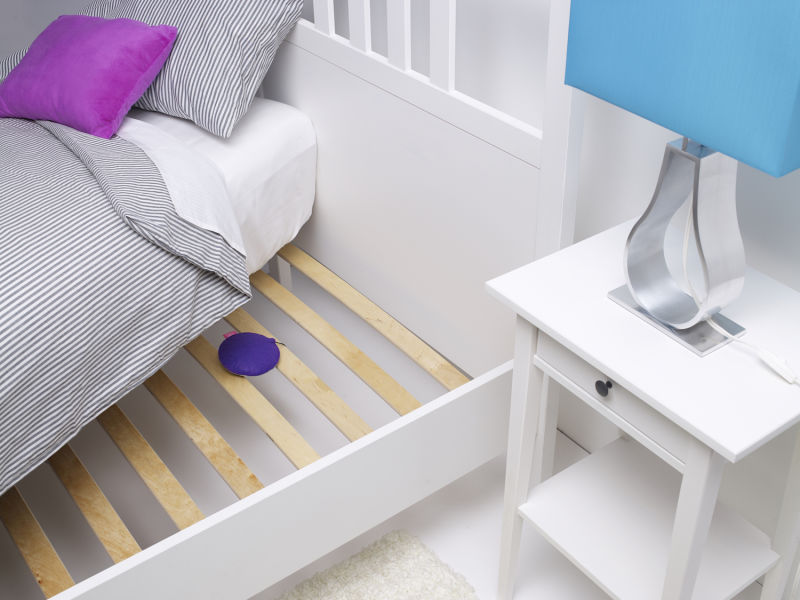The Lloyd's were among the first people to try the device, which launched to the public in mid-July of this year.
[Watch a video below to see how Lully works.]
The pod-shaped Lully is designed to be placed under the child's mattress. It pairs with a mobile app, which parents use to program information about the child's sleep history, including their typical bedtime and the time that they typically experience a night terror. If the child stays up late or goes to bed early, the parent can adjust the mobile app accordingly.
The white pod vibrates for about three minutes, and keeps the child from entering the "troubling deep sleep" that can result in a night terror.
Timing is everything, as "waking the child up during the night terror can make it worse," said Teresa Stewart, a sleep consultant and child development specialist from Boston, Mass., whose own daughter experienced night terrors for years.
Lully was invented by Andy Rink, a physician and Varun Boriah, a mechanical engineer, who met during their fellowship year at Stanford's Biodesign program.
The pair spent months studying "scheduled awakenings," a method for alleviating night terrors that dates back to the 1980s. In order for the approach to work, parents must awaken the child themselves before the night terror.
Rink said many parents did not stick it out as it's a rigorous program. But new mobile and sensor-based technology could be used to rouse the child awake so they don't have to.
According to Stewart, another benefit to using the technology is that it can be stressful for parents to take on the full responsibility for weeks or months. "Sometimes children feed off that stress and they begin to experience anxiety about going to bed," she said.
The device has been tested in a year-long clinical study at Stanford University. Rink claims that Lully was able to reduce night terrors by 90 percent, and the device did not affect the child's quality of sleep or daytime functioning.
The Lully team is considering applying the technology to help children with other sleep-related disorders, including bed wetting and sleepwalking. But for now, Rink said they are focused on improving the technology so it can predict when a child is about to experience a sleep terror, rather than relying on a parent's best guess.
For the Lloyd family, Lully is still a work in progress (their early version of the product won't let them download the app to multiple iPhones, for instance), but it represents a significant step forward from having to wake their daughter up each night.
"Finally, we can put our daughter to bed and not worry she's going to wake up screaming and crying," he said.
